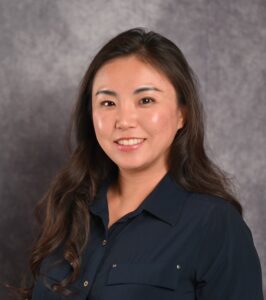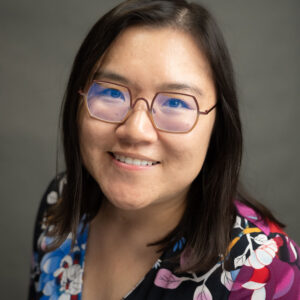Interviewed by Fang Sheng

The imminent closure of the Middlebury Institute of International Studies (MIIS) has reverberated across the global language services community, leaving many stunned and disheartened. For decades, MIIS has been a cornerstone in training elite translators and interpreters, shaping the standards and ethics of the profession. Its legacy is woven into international diplomacy, global business, and humanitarian work. As the news sinks in, we turn to several MIIS alumni—our peers who lived its mission and carried its values into the world—to reflect on what the institute meant to them, and what its potential absence (or transformation) could mean for the future of language professionals.
We asked each of our interviewees the following three questions:
- What was your experience studying at MIIS?
- How has MIIS shaped who you are today?
- How do you view the potential impact of MIIS’s closure on the industry, and how do you plan to adapt?
And here is what they had to say.
Xiaochuan Cao:
My time in Monterey was formative, transforming me from a student into a confident global professional. The rigorous training, the dedicated professors, and the lifelong friendships forged a deep sense of identity, embodied in our “MIIS mafia” alumni network.
While the initial emotional response is one of loss, we must also see this as a critical inflection point. The challenge today isn’t obsolescence by AI, but evolution with it. While AI can produce a high-quality translation, it takes a highly trained human expert to elevate that work from 95% to 99% accuracy and appropriateness—to catch the subtle nuances that machines miss. Will the AI-native generation, who have never known a world without this technology, develop their abilities in a more efficient way, reaching mastery faster than those of us from a pre-AI world? The professionals of tomorrow must therefore be of the highest caliber, blending linguistic mastery and subject matter expertise with a deep proficiency in leveraging technology to achieve a level of quality that neither human nor machine could reach alone.
Perhaps this painful ending is not a final chapter, but a catalyst for reinvention. My hope is that the spirit of MIIS and its exceptional T&I programs will be reborn. A “MIIS 2.0” could emerge from these ashes—leaner, more technologically integrated, and perfectly adapted to train the elite language professionals our new world demands. The legacy is too strong to simply fade away; it must evolve.

Xiaochuan Cao is a certified Chinese-English translator and interpreter whose professional career was built on the foundational training he received at the Middlebury Institute of International Studies at Monterey (MIIS). As a 2012 graduate of the Master’s in Translation and Interpretation program, he credits MIIS for instilling in him a deep commitment to quality and the audience-centric approach that has defined his work for over a decade. His experience spans roles as an in-house linguist for Boston Consulting Group in Greater China, a contract interpreter for Delaware state courts, and currently, as an independent language service provider based in Shanghai and a terminology consultant for the UN’s Food and Agriculture Organization (FAO). He holds certifications from ATA, NAATI, and CATTI.
Jessie Liu:
Before enrolling at MIIS, I was already freelancing as a court interpreter and had just been offered a full-time position—making the decision to pursue graduate studies especially difficult. Though logic urged me to stay with my work, a persistent inner pull led me to follow my intuition. I actually arrived at Monterey without clear expectations, knowing only its reputation for excellence. That openness turned out to be a blessing, allowing me to absorb everything with gratitude. Despite the pandemic pushing most of my classes online and missing the beauty and calm of the seaside campus, my time at MIIS sharpened my professional skills. Now, with its closure, I’m even more grateful I chose to go when I did.
At MIIS, we learned that high-quality input—like reading serious, print-based publications—leads to high-quality output, as our brains engage more deeply with physical text. Staying informed on current events, even without mastering every field, is essential for interpreters to provide meaningful context. Most importantly, interpreting is about human connection, not just linguistic accuracy. Empathy is key: whether in a courtroom, hospital, or conference hall, you must understand and convey the speaker’s intent and emotion. As one professor said, “If you can succeed as an interpreter, you can succeed in any people-centered career”—a truth that continues to resonate with me.
Beyond the interpreting skills I mentioned, Monterey also gave me a platform. The institute has long been a cradle of elite interpreters. Graduates carry a reputation for both skill and professionalism, which naturally opens doors in the market. It’s not about cliques or favoritism, but about the trust and expectations already established by alumni. Employers know Monterey graduates deliver, which makes it easier for us to land opportunities—and then prove ourselves further.
When I first heard Monterey was shutting down, I was shocked and saddened. Some online chatter framed it as “the Harvard of interpreting defeated by AI.” Honestly, that made me angry. AI is a buzzword everyone wants to attach themselves to, but that explanation is far too simplistic. The truth is, almost no profession today is untouched by AI—athletes use it to train, doctors use it in diagnosis. Yes, large language models now translate quickly and accurately, but translation is ultimately a human-centered profession. People still want the “human touch.” It’s like healthcare: you can google symptoms and medication, but how many of us would really treat ourselves confidently without consulting a doctor?
I love this profession and respect it deeply, and I have no plans to leave it. But I do recognize the trends. I believe in adapting with the times—learning how to use AI as a tool, and letting it improve my own efficiency and quality. In the end, AI may change how we work, but it doesn’t change the value of what human interpreters bring.

Jessie Liu is a freelance, court-certified Mandarin interpreter based in California. She began her career in the courtroom, later expanding her practice to the conference field after completing a master’s degree in Conference Interpreting from the Middlebury Institute of International Studies at Monterey (MIIS) in 2021. Since then, she has actively served clients across both legal and conference interpreting settings. In addition to her freelance practice, Jessie is committed to interpreter training and professional development. She teaches in the English and Chinese Court Interpreting Program at UCLA Extension and regularly conducts workshops on court interpreting.
Jessie is also a dedicated advocate for the translation and interpreting profession through her volunteer service at the American Translators Association. She currently serves on ATA’s board of directors, Strategy Committee and Membership Committee. She also contributes to the leadership of ATA’s Chinese Language Division, where she serves on the leadership council and hosts the Division’s podcast, engaging with professionals across the field on emerging issues and trends.
Rony Gao:
For me, the COVID-19 pandemic starting in 2020 opened an unexpected door: the chance to enroll in the renowned Master of Arts in Conference Interpretation (MACI) program at MIIS without having to move to California.
Even though I already had a Master’s-level interpreting degree and a few years of professional experience, I knew I could benefit from the rigorous training at MIIS, not to mention its powerful professional network. An opportunity I couldn’t pass up.
That academic year flew by in a blur of intensive grinding, growing, and adapting, especially as the interpreting profession was settling into the new reality of remote work. Looking back, it was the best decision I have ever made for my career. I came out of the program more confident in my quest for excellence, knowing my skills were now tested and endorsed by one of the world’s most respected institutions. It’s an incredible feeling to know you’ve been trained by the same school that has produced top-notch professionals serving world leaders, multilateral institutions, and the most high-stakes occasions imaginable.
Ultimately, the MIIS experience left me more confident yet, paradoxically, more humble. I gained confidence from receiving a training widely considered the gold standard in our field, yet I was humbled by the brilliant trainers and talented peers who pushed me to become a better professional. Today, I frequently collaborate with fellow MIIS graduates in my work as a freelance linguist. It is a genuine privilege to work with such a dedicated community of colleagues in North America and beyond.
The recent news regarding the future of MIIS is very disheartening. In particular, the closure of its T&I programs would represent the loss of a benchmark for excellence. While I don’t have insider knowledge about the school’s operations, I truly hope that the enormous academic expertise within MIIS’s Chinese Translation & Interpretation programs will find a way to be preserved, perhaps in some new and innovative form.

Rony Gao is an experienced conference interpreter, ATA-certified translator, communications consultant and trainer based in Toronto, Canada. He graduated from the MA in Conference Interpretation program at MIIS in 2021 and currently serves the Chinese Language Division of ATA as event organizer and assistant administrator.
Sijin Xian:
What I loved most about the Conference Interpretation program at MIIS was its no-nonsense, no-fluff emphasis on hands-on professional training. It was a crucible of relentless practice designed to forge mastery. We worked in the booths with real-world speeches spanning a vast spectrum of topics, with the profession’s finest as our professors and the best and the brightest as our peers. From euphoric enlightenment to tearful frustration and everything in between, it was an experience I wouldn’t trade for the world.
I attended MIIS with the explicit goal of becoming a conference interpreter, and that dream became a reality for me upon graduation. Having MIIS on my resume instantly built trust with colleagues and clients, and the rigorous training gave me the confidence to offer my services. MIIS taught me the gold standard of what good interpretation should look like, how to process and deliver information, and how to serve our audience.
It saddens me to think that the proud lineage of MIIS-trained linguists now has a scheduled cutoff, and I hope the TI program can find a new institutional home. The closure of MIIS was a financial decision, not a death knell for our profession. That said, COVID, recession, geopolitics, and the perceived omnipotence of AI are undeniable challenges. I focus on what I can control: do great work, leverage technology to my advantage, and reinvent myself as needed.

With over a decade in language services, Sijin Xian works across translation, subtitling, and interpreting. An ATA-certified English<>Chinese translator, she translates reports for research and advocacy institutions, as well as case documents for legal and immigration proceedings. As an experienced subtitler, she has translated numerous high-profile titles and serves as the Simplified Chinese Co-Language Lead for GloZ in its localization partnership with Netflix. Most recently, Sijin started a new chapter in her career as a conference interpreter, after earning an Advanced Entry MACI degree at MIIS and winning the First Prize Award in the 10th Cross-Strait Interpreting Contest. Sijin serves on ATA’s Honors and Awards Committee and the Leadership Councils of both the Chinese Language Division and Audiovisual Division. She holds another MA in Ethics, Peace, and Global Affairs from American University and is based in the Washington D.C. Metro Area.
Edited by Sijin Xian.
Leave a Reply